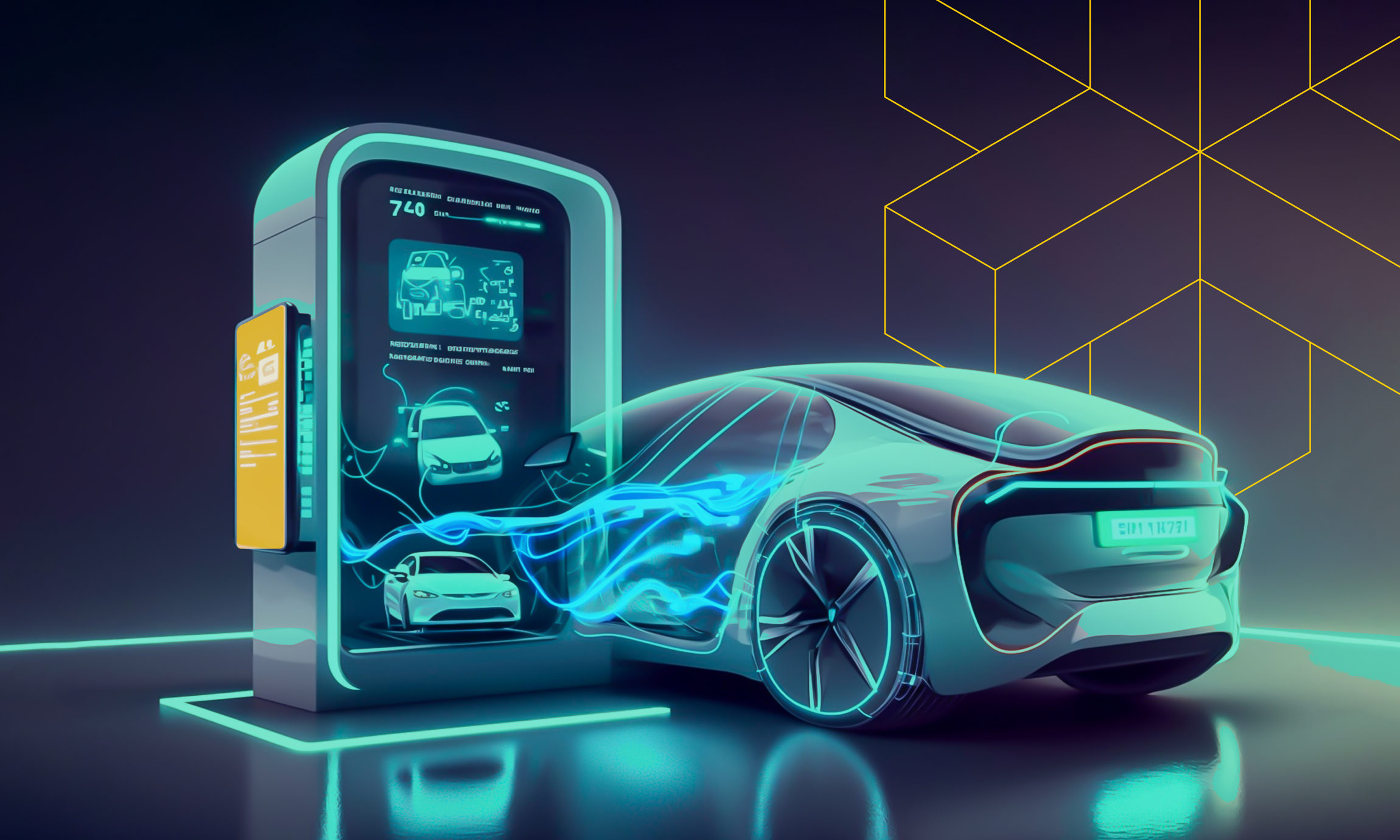Fast, faster, fastest: This is the speed automakers must innovate today to stay ahead of customers' demands and market changes. To achieve this in a rapidly changing industry, automakers are accelerating the uptake of composable commerce to customize experiences, implement in-car commerce and innovate at high speed.

If you’re keeping track of automotive trends, you’re probably aware of how technology like AI, chatbots, connected cars and the Internet of Things (IoT) have dominated the airwaves in the last couple of years. Indeed, the automotive industry is investing in technology like never before to achieve higher efficiencies, leaner operations and supercharged customer experiences. And one such technology is none other than composable commerce.
Like other sectors, car manufacturers are pressured to keep pace with new customer behaviors, market changes and competitor moves. At the same time, many automobile brands have legacy systems to contend with that are the opposite of agile. Also, automakers usually have complex organizational structures across B2C and B2B, as well as relationships encompassing car dealers and eCommerce marketplaces for all things automotive. Add the increased digitization expectations from “functions on demand” to car accessories and services, and automakers have a real challenge to increase revenue across units and boost customer loyalty.
Composable commerce turns these challenges into opportunities. Rather than relying on monolithic, all-in-one commerce platforms, composable commerce enables the automaker sector to assemble smaller and specialized components like search, checkout and cart that can be easily integrated, customized and even easily replaced. For brands, this means flexibility and agility. For customers, this translates into improved services, seamless experiences across touchpoints and customizable products.
In short, companies like Audi, Volkswagen and BMW can create custom commerce experiences tailored to meet drivers’ needs and preferences. As a result, these brands can respond quickly to changing market demands and make their tech organization more efficient and innovation-driven.
We support our group brands in setting up online stores where customers can easily and conveniently browse and buy from the Volkswagen Group’s large product range. A central eCommerce platform is an important component of the brands’ digitization strategy. We are, therefore, establishing an attractive, additional sales channel for the group brands, importers and dealers.
Head of Digital Commerce, Cariad, a Volkswagen Group Company
Integrating in-car commerce in 26 countries is just the beginning for Audi
As one of the world’s leading automakers, Audi is known for its commitment to innovation. But responding to changing customer requirements with a legacy commerce infrastructure hurt the company’s ability to innovate. In addition, boosting customer experiences across all digital channels, including in-car commerce, mobile apps and so on, was also increasingly difficult.
Using commercetools Composable Commerce, Audi was able to centralize all product information, including pricing, product copy, functions and services, in one place. As a result, car dealers and customers can access the same information no matter where they engage with the Audi brand, which creates a seamless experience.
With this homework done, Audi built the channels on top to engage with drivers easily, especially for its eTron range, enabling drivers to buy and activate new car functions (“functions on demand”) like car upgrades via their myAudi app. The automaker released this capability across 26 European countries.
A recent innovation is the Build your Audi experience with an interactive interface for customers to play with different versions (trim levels), a preview of the exterior (body paint finishes, alloys), and the ability to choose interior details and equipment.
Future-proofing customer experiences with composable commerce at BMW Group
First-class products and technology are synonymous with the BMW Group — so are their customer experiences. Using composable commerce, the Group can showcase its enormous catalog of automotive products and accessories, plus integrated digital products ranging from Connected Drive to bookable services like routine maintenance checks and oil changes.
All of these capabilities had to be seamlessly integrated with a myriad of internal applications in a perfect mix of build-and-buy approach. Composable commerce fits these requirements like a glove; in the first eight months after replatforming to commercetools Composable Commerce, BMW Group released 100 deployments to increase the value for customers like digital license plates.
Leveraging a vast, multi-brand product catalog without limits at Volkswagen Group
The Volkswagen Group, a corporation operating as the parent company of the Volkswagen passenger cars and subsidiaries (Bentley, Bugatti, Seat, Audi, Škoda, Lamborghini and Porsche, as well as Ducati for motorcycles), had the challenge to centralize digital commerce across its many brands to support a vast product catalog. In addition, the Group needed a solid cloud-based foundation to deliver commerce functionality that was auto-scalable and cost-effective.
With a centralized commerce engine, customers can purchase everything from vehicles to hubcaps and digital services across a wide range of touchpoints: Branded webshops, mobile apps and the vehicles themselves.
With Amazon Web Services (AWS) as the cloud-based technology behind the scenes, all brands across the Volkswagen Group can quickly make changes and updates to the system. Teams only need to add new product data once, and the solution automatically updates the information across all channels.
Composing the road ahead for the automotive market
Beyond car manufacturers, the automotive industry at large can greatly benefit from composable commerce. Businesses selling cars and accessories online are in the pole position to make digital customer experiences more fluid, optimizing the entire customer journey from product discovery and configuration to payment and checkout.
As automobile sales and loyalty programs take the digital road, composable commerce is the high-speed solution that meets the needs of an industry that never stops innovating.
Are you exploring new ways to leverage digital commerce in the automotive industry? Get in touch with us to discuss how to drive this forward.